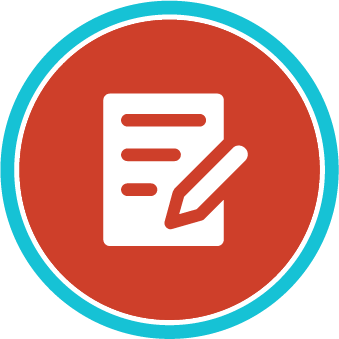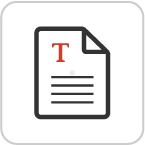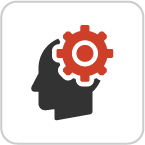Write Your Paper
10 Getting Started Writing Your Paper
 There are two primary types of writing you will likely be required to do in your post-secondary studies: scholarly writing and reflective writing. Scholarly writing requires you to refer to journal articles or other forms of evidence, while reflective writing requires you to draw from your own experience and feelings. Academic writing ability will also serve you well in your career.
There are two primary types of writing you will likely be required to do in your post-secondary studies: scholarly writing and reflective writing. Scholarly writing requires you to refer to journal articles or other forms of evidence, while reflective writing requires you to draw from your own experience and feelings. Academic writing ability will also serve you well in your career.
Tips
Before you begin the chapter, take a look at these top tips for writing your paper.
- Check your assignment outline.
 Review the outline to determine whether your writing should be scholarly or reflective.
Review the outline to determine whether your writing should be scholarly or reflective. - Include your own insight.
 For scholarly writing, you’ll need to refer to the scholarly literature, but don’t forget to include your own analysis and synthesis.
For scholarly writing, you’ll need to refer to the scholarly literature, but don’t forget to include your own analysis and synthesis. - In reflective writing, be honest.
 Don’t try to present some “perfect” version of yourself. Write an accurate account of what you did, even if you should have done it differently.
Don’t try to present some “perfect” version of yourself. Write an accurate account of what you did, even if you should have done it differently. - Know that writing is a skill that everyone can improve.
 Check out The Learning Portal’s Writing Hub for practical strategies and tips that can help you improve your writing.
Check out The Learning Portal’s Writing Hub for practical strategies and tips that can help you improve your writing.
Important Terms Used in this Chapter
Browse the content below to learn more about the following academic writing topics:
- Scholarly/academic writing (including literature reviews)
- Reflective writing
- Writing in your career
Scholarly/Academic Writing
Scholarly/academic writing requires you to use information from “the literature” (journal articles and other sources of evidence) to write about a topic. If you’re asked to write a scholarly paper, your writing should be similar in style to what you would find in a published scholarly article.
Characteristics of Scholarly Writing
The following are some characteristics of scholarly writing:
- It is not in first person. Unlike reflective writing, scholarly writing is not typically written in first person perspective (in other words, scholarly writing does not typically include the words “me” or “I”).
- It includes analysis and synthesis. Good scholarly writing includes both analysis (making your own interpretations of the literature) and synthesis (bringing together evidence from various sources to form a single idea or argument).
- It can include evaluation. Scholarly writing may also include evaluation (making judgements about the literature).
- It goes beyond summarizing the results of studies. Unless you have specifically been asked to create a summary, scholarly writing usually goes beyond describing the results of research studies to include some combination of analysis, synthesis, and evaluation.
Type of Scholarly Writing – Literature Reviews
A literature review is one type of scholarly writing assignment you will likely have to complete. You may be asked to write a literature review as a stand-alone assignment or as part of a larger assignment or research project.
Literature reviews involve doing the following things:
- Summarizing what is known about a particular topic based on your examination of existing scholarly sources. This creates a summary of what is known and the gaps and inconsistencies in the existing literature and/or research approaches used.
- Synthesizing ideas. When you are synthesizing multiple texts, you should organize your writing based on the content as opposed to the individual sources. Consider the similar themes across multiple sources and organize your writing according to these themes. You should identify the main ideas in the literature and compare/contrast them with purpose.
Learn more about literature reviews
Watch the video and complete this activity to learn more about literature reviews. You can also read the video transcript.
Video
Activity
Reflective Writing
Reflective writing is a process that involves recalling an experience or an event, thinking and deliberating about it, and then writing about it. Reflective writing requires that you think deeply and critically about an experience or a text. At the centre of reflective writing is the “self” – including a deep analysis of yourself in relation to the topic. Watch the video and read the information below to learn more about the strategies for reflective writing in health sciences. You can also read the video transcript.
Reflective Writing in Nursing
In nursing, reflective writing is part of what is called “reflective practice.” Early in your nursing program, you will become familiar with the College of Nurses of Ontario requirements for nurses to engage in reflective practice; this legislated professional expectation involves an intentional process of reflecting to explore and analyze a clinical experience with the aim of strengthening your practice. You will likely complete many reflective writing assignments throughout your program.
Tips for Reflective Writing
Here are some tips for reflective writing:
- If possible, choose a topic or situation that is meaningful to you.
- Be vulnerable in your writing and share your thoughts and feelings. You don’t need to write about a sanitized version of yourself – it’s okay to ponder mistakes or areas for improvement.
- Description is important, but so is analysis so that you can gain new insights.
- Think critically about your experience and be open to new perspectives.
The LEARN framework
Although there are many ways to reflect, one common framework for reflective writing is called LEARN, which was developed by the College of Nurses of Ontario (1996). LEARN is an acronym representing each of the steps in the process (below). To use the LEARN framework, follow this process:
- Look back. Recall a situation that was meaningful to you in your practice.
- Elaborate. Describe the situation from both an objective and subjective perspective (e.g., what did you see, hear? Who was involved and what interactions were observed? What did you think and feel?)
- Analyze. Examine how and why the situation happened the way it did. Think about it in the context of your nursing courses and the literature.
- Revise. Consider how and why your practice should remain the same and how it should be changed.
- New trial/perspective. Think and move forward. What will you do differently when a similar situation arises?
Narrative Approach
Reflective writing can also be approached as narrative writing in which you engage in personal and professional storytelling. A narrative approach to reflective writing asks you to think about storied elements (e.g., characters, events, setting) of an experience:
- What happened?
- How did the situation begin?
- Who was involved?
- Where did it take place?
- What emotions were people feeling?
- How did the situation end?
As you can see, these types of questions can easily be integrated into the LEARN framework too.
Writing in Your Career
Both scholarly and reflective writing skills will be essential in your working life. As we covered in the Reflective Writing tab, the College of Nurses of Ontario requires nurses to engage in reflective practice, which includes reflective writing. Here are some other types of writing that you may be involved in as a nurse or other health care practitioner:
- Social awareness and advocacy campaigns in which you share knowledge and bring awareness to an issue or a new policy.
- Educating and influencing people and communities. The power of writing provides a means for nurses to state their position and influence others. Nurses are involved in crafting policy ideas to influence stakeholders and government bodies on public health issues.
- Best practice guidelines, standards of practice, and policies and procedures to inform nursing practice.
- Research grants, continuing education grants, and manuscripts for publication.
Test Your Knowledge
Additional Writing Support
- Writing Hub – The Learning Portal
Tips and strategies to help with your writing. It covers general writing strategies, as well as more specific types of writing, such as essay writing. - The Scholarship of Writing in Nursing Education
Ryerson University: Learn more about writing for nursing students (most of it is applicable to all health sciences students).
- For attributions, please see the Attributions page in the table of contents. ↵
Reflective writing involves thinking critically about your own experience and feelings. It is a component of reflective practice, which is an essential practice for nurses and other health care practitioners.
Scholarly writing (also known as academic writing) involves analyzing, synthesizing, and evaluating scholarly literature. This is the style of writing that scholarly articles are written in.

